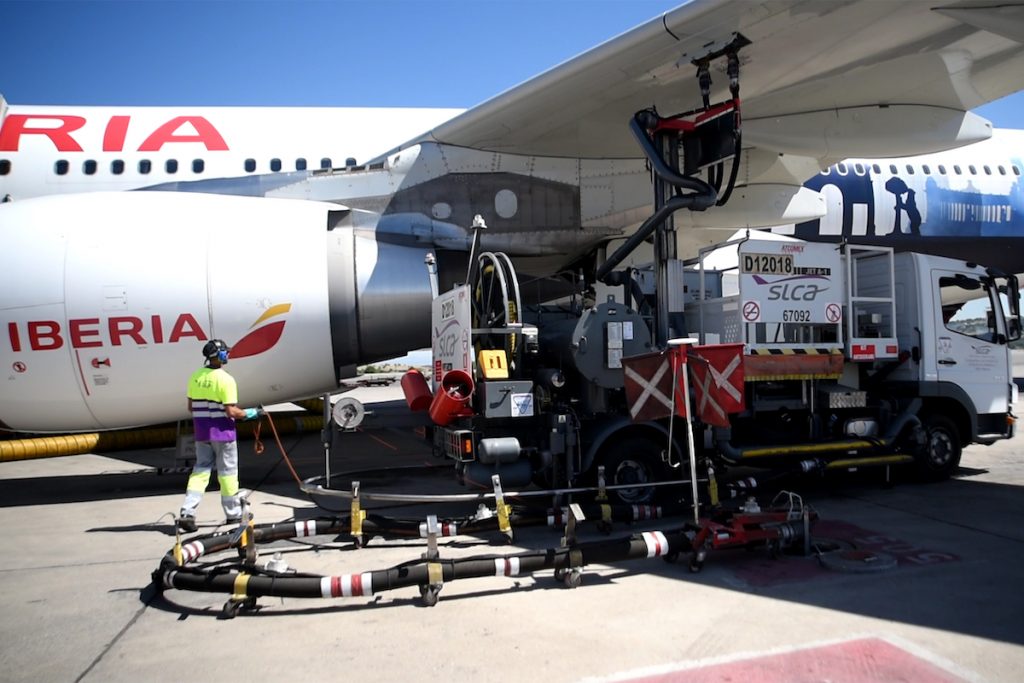American Express Global Business Travel, Shell and Accenture have teamed up to launch Avelia, a so-called book-and-claim platform designed to help businesses buy sustainable aviation fuel.
The book and claim model allows companies to pay for the fuel, and claim the benefits, even if it’s not available at their departure airport. The fuel is instead fed into another aircraft in an airport where available.
The goal is to drive down the costs of a fuel that’s between two and eight times dearer than conventional jet fuel.
“Once book-and-claim is approved by industry bodies as an acceptable form of emissions reduction, Avelia could enable airlines and companies who choose sustainable aviation fuel to authenticate, record and report the associated emissions reduction benefits of the fuel towards their voluntary environmental, social, and corporate governance reporting, regardless of where in the world the fuel is used to fuel a flight,” the company said.
The model is also used when purchasing “green electricity” and has been described as one of the most suitable solutions by the European Union. “It balances the fuel’s technical potential, the administrative burden for the aviation industry and fundamental EU Emissions Trading System requirements, like fraud protection,” according to one study.
Drop in the Ocean
The road to decarbonizing business trips is a long one, however. It’s still hard to tell if there’s any meaningful impact. The fuel is still very expensive, and as a pilot program, Avelia will initially offer one million gallons of the fuel, which it claimed was enough to power almost 15,000 individual business traveler flights from London-to-New York.
Overall this pilot wants to demonstrate the credibility of the book-and-claim model. Avelia was developed by Shell and Accenture, with the support of the Energy Web Foundation, but wants to tap into the buying power of Amex GBT’s 19,000 customers.
Will they pay the premium?
“Sustainable aviation fuel is a key enabler of decarbonisation in the aviation industry, and it’s available today. However, it’s currently scarce and costs more than conventional jet fuel,” said Jan Toschka, president of Shell Aviation. “Avelia will help trigger demand for sustainable aviation fuel at scale, providing confidence to suppliers like us to further increase investment in production, and in turn helping to lower the price point for these fuels.”
Amex GBT recently formed an alliance with Shell to help increase the supply of sustainable aviation fuel.
Shell has committed to purchasing the environmental attributes equivalent to 100,000 gallons of the fuel over the pilot phase. It said it would increase that as soon as more of the fuel is available, as it wants to abate 45 percent of its corporate travel emissions through sustainable aviation fuel by 2030.
Sustainable aviation fuel can be made from plant or animal material, and can reduce lifecycle emissions by up to 80 percent compared to conventional jet fuel
“We’re calling on all companies to join us and share the costs and benefits of sustainable aviation fuel across the travel and aviation sectors,” said Paul Abbott, CEO of Amex GBT.
United Airlines and United Airlines Ventures last week announced they were buying at least 300 million gallons of sustainable aviation fuel from utilization company Dimensional Energy over a period of 20 years. United aims to be a “100 percent green net zero” by 2050, without the use of traditional carbon offsets.
On Sunday, Qantas Airways and Airbus said they would invest up to $200 million to accelerate the development of a sustainable aviation fuels industry in Australia to help meet the airline’s goal of lowering carbon emissions.
